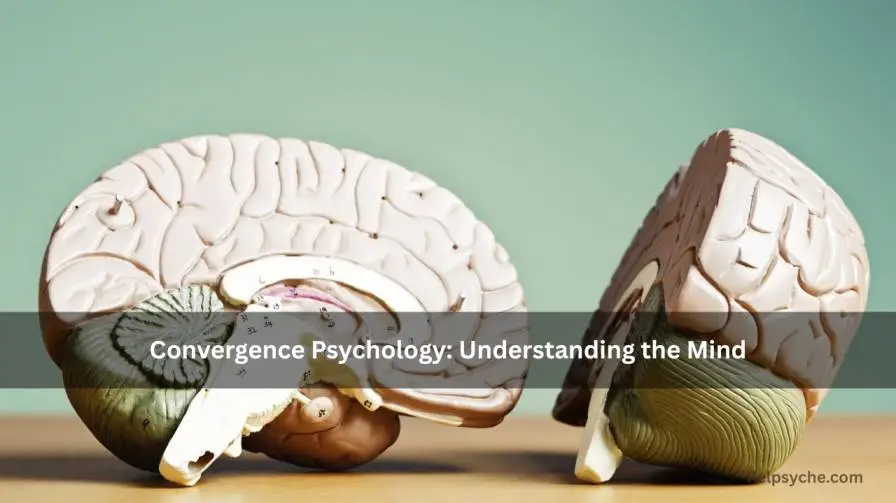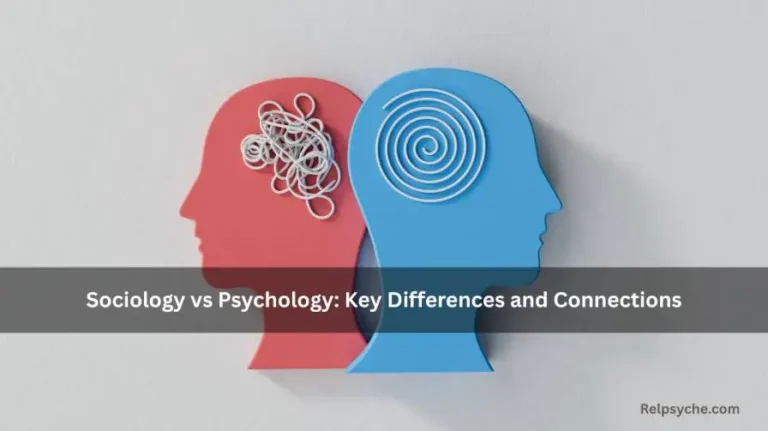Convergence Psychology: Understanding the Mind
Convergence Psychology is a modern approach that studies how different parts of the human mind and behavior work together. Traditional psychology often focuses on just one viewpoint—like behaviorism, which studies actions, or psychoanalysis, which studies unconscious thoughts. But human life is much more complicated. Our feelings, thoughts, experiences, and environment all affect who we are and how we behave.
Convergence Psychology combines all these areas to give a more complete understanding of people. It blends science and emotion to explain why people think and act the way they do.
Here’s what it does:
- Connects personal and social factors that shape behavior.
- Builds a balanced view of emotional and mental health.
- Encourages empathy while staying based on research and evidence.
This approach helps professionals such as teachers, counselors, and therapists design better treatment plans, improve emotional health, and understand others more deeply.
Table of Contents
The Roots of Convergence Psychology
The idea of Convergence Psychology didn’t appear suddenly. It developed over many years as psychologists began to see that no single theory could fully explain human behavior. People are influenced by both their internal thoughts and the world around them.
Early Ideas
In the late 19th century, psychologists like William James and Sigmund Freud focused on different parts of the mind. James studied consciousness and behavior, while Freud explored emotions and hidden desires. As psychology grew, new theories appeared—behavioral, cognitive, and humanistic. Each explained part of human nature but never the full picture.
Researchers realized that the best way to understand people was to combine these ideas. Slowly, psychology began to “converge” or come together. This is how Convergence Psychology was born—a field that values collaboration among theories.
Modern Understanding
Today, Convergence Psychology brings together five main areas:
- Cognitive psychology (how we think)
- Behavioral psychology (how we act)
- Humanistic psychology (how we grow)
- Social psychology (how others influence us)
- Biological psychology (how the brain and body affect behavior)
Together, they create a more realistic picture of human life. For example, stress isn’t just a mental issue—it can be affected by your body, your relationships, and even your culture. This is what Convergence Psychology helps uncover.
How Convergence Psychology Works
Convergence Psychology works by connecting the mind, body, and environment. It says that behavior is never caused by just one thing. Instead, it’s a mix of thoughts, emotions, biology, and surroundings.
Let’s look at some examples:
- A student who struggles to focus may not only have trouble thinking (a cognitive issue) but might also feel social pressure, lack sleep, or deal with family stress.
- A worker who feels burnout may be affected by job demands, low self-worth, or poor work-life balance.
By looking at all these factors together, Convergence Psychology helps experts find deeper causes and better solutions. It creates a complete picture of human experience instead of just treating symptoms.
This approach also encourages people to see how their thoughts, environment, and relationships shape their emotional health. It teaches self-awareness and helps individuals manage their mental well-being more effectively.
Key Principles of Convergence Psychology
Here are the key ideas that make Convergence Psychology unique and powerful:
1. Integration Over Isolation
Instead of focusing on one theory, convergence psychology brings together many. It respects every viewpoint and uses what works best for each situation. This integration helps psychologists understand people more fully and treat them more effectively.
2. Mind–Body Connection
Our mental and physical health are closely linked. When your body is tired or sick, your mood and thoughts can change. Similarly, emotional pain can show up as physical stress. Convergence Psychology reminds us that healing must happen both in the mind and body.
3. Personal and Social Balance
People don’t exist in isolation. Our culture, family, and friends shape who we are. This approach studies how personal experiences and social settings blend together to form our identity.
4. Scientific and Humanistic Blend
Convergence Psychology values both data and empathy. It uses science to find truth but also focuses on compassion, understanding, and emotional meaning. This balance makes it practical and humane.
5. Continuous Growth
Human behavior is always changing. Convergence Psychology believes learning and growth are lifelong processes. It encourages curiosity and openness to new experiences.
Applications of Convergence Psychology
Convergence Psychology is used in many areas that involve understanding people and improving lives.
1. Mental Health Treatment
Therapists often use a mix of methods—like Cognitive Behavioral Therapy (CBT), mindfulness, and positive psychology—to help people with depression, stress, or trauma. This blended approach offers faster recovery and long-term emotional balance.
2. Education
Teachers use convergence psychology to improve how students learn. They combine emotional support, creativity, and study skills to make education more engaging. This approach helps students stay motivated and confident even during challenges.
3. Workplace Psychology
In companies, convergence psychology is used to understand teamwork, motivation, and leadership. Managers who apply it can build stronger communication, increase productivity, and create healthier work environments.
4. Health and Wellness
Doctors and mental health professionals often work together using this approach. By treating both physical and emotional health, patients heal more completely and build long-term habits for wellness.
5. Social and Cultural Studies
Convergence Psychology helps explain how upbringing, culture, and society shape our values and actions. It offers insight into diversity and how humans connect despite differences.
Benefits of Convergence Psychology
The benefits of Convergence Psychology reach every part of life:
- Broader Understanding: It looks at the entire person, not just one behavior.
- Better Communication: Encourages experts from different fields to collaborate.
- Creative Problem-Solving: Combines ideas to find new, effective solutions.
- Improved Mental Health Care: Makes treatment more personalized.
- Practical for Real Life: Helps people understand why they feel or act a certain way.
By focusing on the whole person, Convergence Psychology helps create healthier minds, stronger relationships, and more balanced lives.
Challenges of Convergence Psychology
Even though Convergence Psychology is effective, it comes with some challenges:
- It’s hard to combine so many theories without confusion.
- It requires teamwork between professionals from different areas.
- Research takes more time because it studies multiple factors.
Still, experts agree the effort is worth it. The insights gained are far deeper than what traditional single-focus psychology can offer. It pushes the field toward empathy, collaboration, and better results for everyone.

Conclusion
Convergence Psychology shows that human behavior is complex and cannot be explained by one theory alone. It reminds us that thoughts, feelings, biology, and environment all work together to make us who we are.
By connecting science and emotion, Convergence Psychology helps psychologists, doctors, and teachers see people in a complete way—not just as problems to fix but as individuals to understand. It builds bridges between research and compassion, helping people grow mentally, emotionally, and socially.
In a world where stress, anxiety, and disconnection are common, Convergence Psychology offers a fresh and hopeful approach. It reminds us that true understanding comes from unity—not division—and that healing happens when we look at the whole person, not just one part of them.
Ready to take the next step in your personal growth? Explore expert services — from therapy to life coaching — available on Fiverr.
If you want to read more articles similar to Convergence Psychology: Understanding the Mind, You Need to Know, we recommend that you enter our Psychology category.
FAQs
1. What is Convergence Psychology in simple terms?
Convergence Psychology means combining different ideas in psychology to understand people better. It looks at how thinking, emotions, and surroundings all work together to shape who we are.
2. Who uses Convergence Psychology?
Psychologists, doctors, teachers, and counselors use it to help people heal, learn, and grow. It’s useful in mental health, education, and even business.
3. How is Convergence Psychology different from traditional psychology?
Traditional psychology often focuses on one theory or idea, like behavior or emotion. Convergence Psychology mixes many perspectives for a fuller picture of human life.
4. Why is Convergence Psychology important today?
It’s important because modern problems—like stress, anxiety, and social pressure—don’t have one simple cause. This approach helps create more practical and compassionate solutions.
5. Can Convergence Psychology be used in everyday life?
Yes. You can use it to understand your emotions, relationships, and decisions better. It helps you see how your thoughts, body, and environment influence your actions.
References
- American Psychological Association (APA). Theories and Approaches in Psychology.
- Simply Psychology. Understanding the Integration of Psychology Fields.
- Journal of Interdisciplinary Psychology. The Concept of Convergence in Human Behavior Studies.
- University of California. Modern Perspectives in Psychological Science.
- Verywell Mind. Combining Therapy Approaches for Better Results.

I’m Emma Johnson, a psychologist who loves to write and share ideas.
I enjoy making psychology simple so everyone can understand and use it in daily life.
If you’d like to talk, ask questions, or work together, feel free to reach out.
Let’s learn and grow in the world of psychology together!







